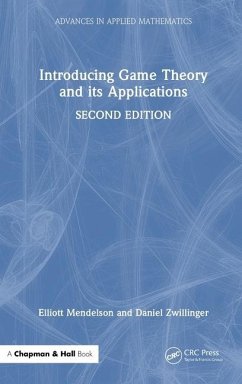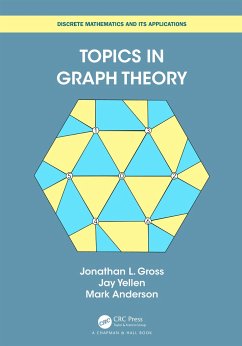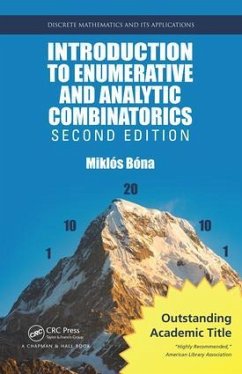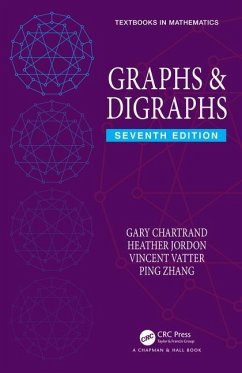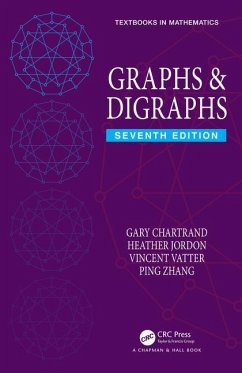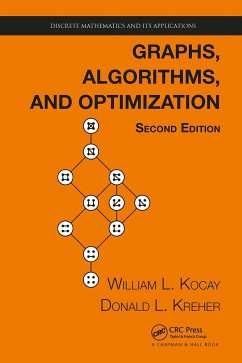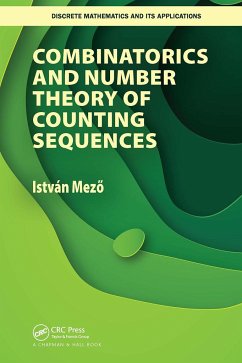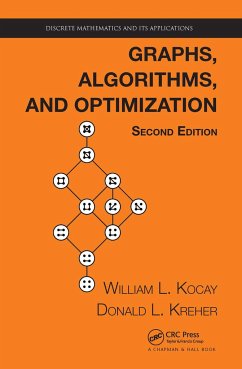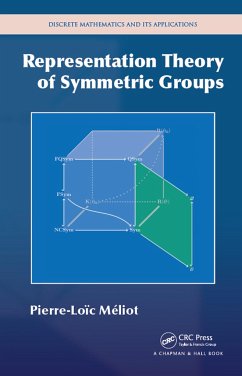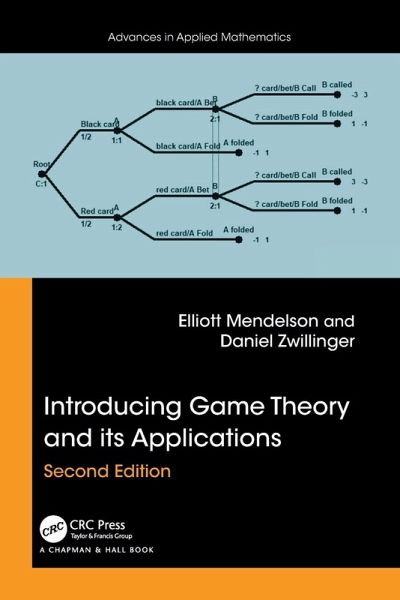
Introducing Game Theory and its Applications
Versandkostenfrei!
Versandfertig in 6-10 Tagen
68,99 €
inkl. MwSt.
Weitere Ausgaben:

PAYBACK Punkte
34 °P sammeln!
This classic text, originally from the noted logician Elliot Mendelson, is intended to be an easy-to-read introduction to the basic ideas and techniques of game theory. It can be used as a class textbook or for self-study.Introducing Game Theory and its Applications, Second Edition presents an easy-to-read introduction to the basic ideas and techniques of game theory. After a brief introduction, the authors begin with a chapter devoted to combinatorial games--a topic neglected or treated minimally in most other texts. The focus then shifts to two-person zero-sum games and their solutions.Here ...
This classic text, originally from the noted logician Elliot Mendelson, is intended to be an easy-to-read introduction to the basic ideas and techniques of game theory. It can be used as a class textbook or for self-study.
Introducing Game Theory and its Applications, Second Edition presents an easy-to-read introduction to the basic ideas and techniques of game theory. After a brief introduction, the authors begin with a chapter devoted to combinatorial games--a topic neglected or treated minimally in most other texts. The focus then shifts to two-person zero-sum games and their solutions.
Here the authors present the simplex method based on linear programming for solving these games and develop within this presentation the required background. The final chapter presents some of the fundamental ideas and tools of non-zero-sum games and games with more than two players, including an introduction to cooperative game theory.
The book is suitable for a first undergraduate course in game theory, or a graduate course for students with limited previous exposure. It is useful for students who need to learn some game theory for a related subject (e.g., microeconomics) and have a limited mathematical background. It also prepares its readers for more advanced study of game theory's applications in economics, business, and the physical, biological, and social sciences.
The authors hope this book breeds curiosity about the subject as its design is meant to to satisfy the readers. The book will prepare readers for deeper study of game theory applications in many fields of study.
Introducing Game Theory and its Applications, Second Edition presents an easy-to-read introduction to the basic ideas and techniques of game theory. After a brief introduction, the authors begin with a chapter devoted to combinatorial games--a topic neglected or treated minimally in most other texts. The focus then shifts to two-person zero-sum games and their solutions.
Here the authors present the simplex method based on linear programming for solving these games and develop within this presentation the required background. The final chapter presents some of the fundamental ideas and tools of non-zero-sum games and games with more than two players, including an introduction to cooperative game theory.
The book is suitable for a first undergraduate course in game theory, or a graduate course for students with limited previous exposure. It is useful for students who need to learn some game theory for a related subject (e.g., microeconomics) and have a limited mathematical background. It also prepares its readers for more advanced study of game theory's applications in economics, business, and the physical, biological, and social sciences.
The authors hope this book breeds curiosity about the subject as its design is meant to to satisfy the readers. The book will prepare readers for deeper study of game theory applications in many fields of study.





